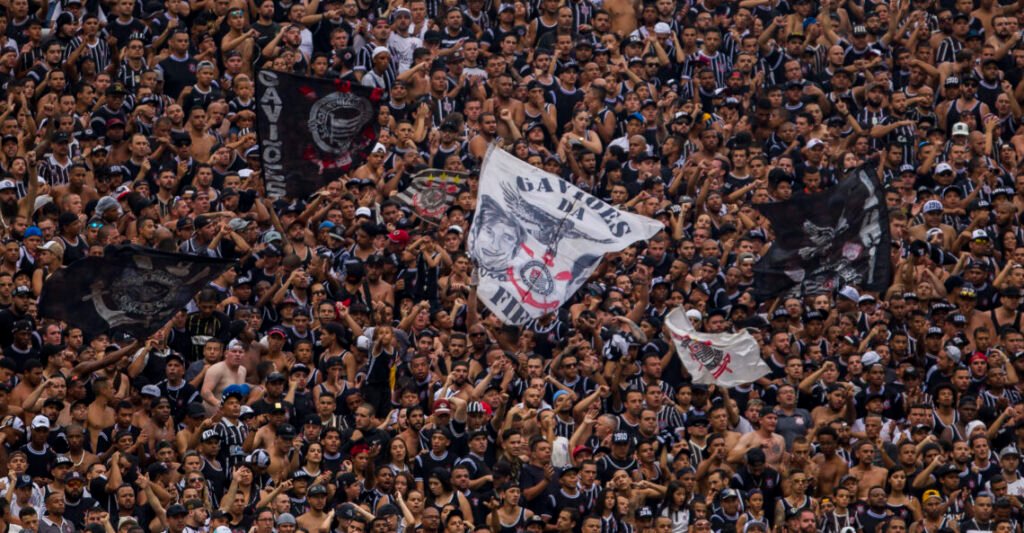
Few football clubs in the world can claim a fanbase as passionate and widespread as Sport Club Corinthians Paulista. In São Paulo, a city rich in football tradition and fierce rivalries, Corinthians stands out not only for its historical achievements but also for its unmatched emotional connection with the people. This article explores the key reasons why Corinthians became the most beloved football club in São Paulo, from its humble beginnings to its evolution into a cultural symbol.
A Club Born for the People
Corinthians was founded on September 1, 1910, by five working-class railway laborers who were inspired by a visiting English team, Corinthian FC. Unlike other clubs in Brazil at the time, which were often elitist and exclusionary, Corinthians was born with an inclusive spirit. It was a team that welcomed the working class, giving voice and visibility to a segment of the population largely ignored by the sporting elite.
This foundation created an unbreakable bond between the club and the masses of São Paulo. Corinthians became a mirror of the city’s majority: hardworking, resilient, and proud. This working-class identity would shape the club’s future and fan culture in profound ways.
Early Struggles and the Cultivation of Loyalty
In its early decades, Corinthians faced intense competition from more established teams like Palmeiras (then Palestra Italia), São Paulo FC, and Santos FC. Despite lacking financial power or top-tier facilities, Corinthians earned respect by winning the Campeonato Paulista for the first time in 1914, only four years after its creation.
The club’s perseverance during hard times, including a long title drought between 1954 and 1977, only deepened its bond with supporters. This period gave rise to an unshakable loyalty among fans, who stood by the club through disappointment, relegation threats, and political turmoil. It was during these lean years that the Corinthians fanbase transformed into what is now known as the “Fiel” – the faithful.
Corinthians and the Social Fabric of São Paulo
Corinthians grew alongside the city of São Paulo, especially during periods of intense urbanization and migration in the 20th century. As millions moved to the city in search of better opportunities, Corinthians offered a sense of identity and belonging. Supporting the club became a rite of passage for new generations born in the concrete jungle of São Paulo.
The club’s strongholds were in the city’s eastern and peripheral zones, where marginalized communities found in Corinthians a reflection of their own struggles and aspirations. This relationship elevated the club beyond sport, embedding it into the cultural and social DNA of São Paulo.
Iconic Moments that Strengthened the Bond
Certain moments in Corinthians’ history fortified its place as the people’s club. The 1977 Campeonato Paulista title, which ended a 23-year drought, became a landmark celebration for millions. The streets of São Paulo were flooded with fans, a testament to how deeply the club was woven into the city’s soul.
The “Democracia Corinthiana” movement in the early 1980s, led by players like Sócrates and Wladimir, merged football with social activism. Players demanded and practiced democracy within the club, giving voice to issues of civil rights and freedom during Brazil’s military dictatorship. This era further cemented Corinthians’ identity as a club of the people.
The Fiel: The Driving Force Behind the Love
No exploration of Corinthians’ popularity is complete without highlighting the Fiel Torcida. Unlike most fan bases that grow during periods of success, the Fiel remained loyal even in adversity. They filled stadiums during slumps, displayed powerful mosaics, and created an atmosphere of unity and resistance.
Their support reached a new global stage during the 2012 FIFA Club World Cup, when over 20,000 Corinthians fans traveled to Japan. Their presence stunned international media and proved that Corinthians was not only a local powerhouse but a club with a truly global and mobilized following.
The Club’s Modern Legacy
Today, Corinthians continues to be a symbol of pride for millions of Paulistanos. With a modern stadium, robust digital presence, and success in men’s and women’s football, the club retains its relevance across generations. New fans are constantly drawn in by family tradition, cultural immersion, and the unshakable spirit that defines the club.
Its influence extends into music, politics, fashion, and even academic discussions, proving that being a Corinthians supporter is a cultural identity as much as a sporting preference.
Corinthians is not just a football club in São Paulo – it is an embodiment of the city’s heart and soul. Through decades of triumphs and heartbreaks, it has maintained a unique bond with the people. By remaining true to its working-class roots, embracing its cultural role, and fostering one of the most passionate fan bases in the world, Corinthians has earned its place as the most beloved club in São Paulo. And for the Fiel, it was never just about football. It was always about belonging.
